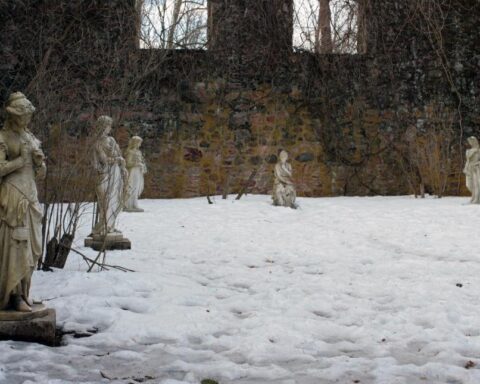Crissy had two options: she could live in her grandmother’s yellow clapboard house on a side street in the middle of town or purchase one of the new lofts converted from a Nineteenth century cotton mill beside the river. Her Nanna’s house needed a lot of work. New paint, a kitchen floor that had bowed beneath the weight of uncles who hovered around cooling baked goods, and an attic where bats got in.
The loft was fresh. Thick pine floorboards had been sanded and exuded the aroma of forests buried in the woodgrain restorers had sanded smooth. The beams were impressive. They had once supported massive looms. The space was open plan. It suited the lifestyle Crissy pictured. The rear of the space featured a view of the river that once drove cotton ginnies. If she opened the casements on a summer night she would be able to hear water passing over the cobbled stream.
Crissy told her friends her life was her life, not someone else’s she inherited. The quaint furnishings of the old house were auctioned off. From the sale of her Nanna’s home Crissy acquired the loft, new and comfortable leather armchairs with a matching sofa, copper pots she hung from a rack above the kitchen counter, and a comfortable bed. She settled herself in the loft and was certain she would be happy there.
For the first five nights in the loft Crissy slept well. She couldn’t recall having slept so deeply. But on the sixth night she dreamed. She woke in the dark, her body drenched in sweat, ill to her stomach, and certain she could still hear the sounds of machinery from a dream. She stared across the dark space. She was certain she saw a child on the sofa, weeping and holding her hand, but the spectre vanished as she stared into the darkness.
What she thought she saw upset Crissy. As she sat and sipped her coffee in the morning, she wrapped her hands around the large mug she wanted to put the night behind her. But gradually she was overcome by a terrible feeling that the child wanted to speak to her. The longer Crissy stared at the sofa, the more the river sounded like machinery. Crissy needed a walk to clear her head.
The bright sunshine of a late September morning should have made her feel alive, but she couldn’t get out of her head the image of the little girl . The longer she thought about the child, the more Crissy could see the details of the visitor. The girl was wearing a white pinafore over a dark blue gingham dress, black tights, and scuffed work boots. The child’s hair was tied behind her or cut short, and she was clutching her right hand as she sobbed. She didn’t look at Crissy. She was staring into her hand and her face conveyed a horror that frightened Crissy and made her question whether her Nanna’s house might have been the better choice. Everyone in that house had lived happily and most had died happily when they were home.
The old woman was a study in courage. She had raised four sons in the small space, had lost her husband to appendicitis and her second oldest, Roy, in a small town in Normandy. The bronze star her Nanna received was always on the woman’s bureau beside her brush and comb. And when Roy’s spirit stopped and looked into the room where Crissy was sleeping, she was certain her uncle’s spirit looked at her and smiled. He had come home one last time to make sure all was well and that his mother and brothers were leading the lives he wished he could have lived.
The loft wasn’t homey. Crissy paused in front of the library and decided to go in. She told the librarian that she wanted to know about the riverside mill. What had it been like there? Was it a place of sadness or simply a factory where the workers produced cotton cloth? The librarian’s face grew serious. Without saying a word, she led Crissy through boxes of local archives and handed her one that contained the records of the mill.
There were images of women and children, each standing beside machines. They appeared gaunt. Their eyes were sunken and stared at her through the veil of time. One woman had her hands folded over the stomach and the photograph revealed she was missing fingers from her right hand. So were several of the children. The machines had been designed for operation by the nimble-fingered. Bobbins flew across beds of thread and if the flyer became jammed the operator had to reach into the loom and free the flying projectile before the shuttle slammed the threads in place. The process was a matter of timing. A second’s delay could result in a mutilating injury.
That night, Crissy lay awake. She felt ill at the thought of what had taken place in her loft. There must have been terrible pain and suffering where she was making her comfortable life, living her dreams in a place where others had fought just to make a meager living. She was embarrassed to be occupying their space.
She heard weeping and saw the child again, this time holding up her right hand. The ring, middle, and little fingers were missing. She was bleeding profusely. She stared at Crissy as if pleading for help but there was nothing Crissy could do. A gulf of time lay between them.
As dawn arrived, Crissy rose from her bed to make coffee, exhausted from having been awake all night and feeling too terrified to close her eyes. And as she ran the water to fill the maker, she turned and on the countertop, beneath her glowing copper pots, was a tiny little finger, withered and dried yet still retaining its fingernail and the colour of its young flesh.



